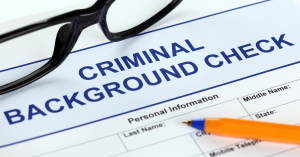Key Takeaways
- Understanding wrongful death claims can help families clarify the legal process.
- Knowledge about legal recourse and compensation can aid in finding justice and closure.
- Familiarity with standard legal procedures and terminology is beneficial in pursuing claims.
Introduction to Wrongful Death Claim
Understanding the legal process of wrongful death litigation is crucial for families dealing with the loss of a loved one. This rigorous and emotionally exhausting procedure can bring closure and assist families in making educated decisions during difficult times. Wrongful death lawsuits, handled by a wrongful death attorney Tampa, FL, can aid survivors in obtaining financial compensation, promoting responsibility, and driving changes to improve public safety. Understanding the legal framework around these issues will help you navigate the judicial process more quickly and provide justice for the family. This article provides insight into the legal process of pursuing justice for a loved one.
What constitutes a wrongful death claim?
A wrongful death suit is a legal action that seeks to hold persons or entities accountable for their negligent or purposeful conduct that resulted in someone’s death. It allows survivors, often family members, to seek compensation for their loss, covering damages like income, funeral expenses, and emotional distress. Establishing a wrongful death claim can provide justice, discourage future negligence, and promote societal safety and accountability.
Legal Recourse and Compensation Types
In wrongful death cases, families can claim several types of compensation to relieve some of the financial burdens associated with their loss. These include:
- Economic Damages: These damages include actual financial losses such as lost wages, burial expenses, medical expenditures, and other out-of-pocket expenses directly linked to the death.
- Non-Economic Damages: These damages include non-monetary losses like pain and suffering, mental distress, and loss of companionship. These are invaluable yet essential considerations for the families left behind.
This resource provides a deeper understanding of these compensation types and the damages available to claimants.
Common Causes of Wrongful Death
The causes of wrongful death are varied, encompassing numerous scenarios, including:
- Car Accidents: These are frequent contributors to wrongful death claims, often stemming from negligence, such as distracted or impaired driving.
- Medical Malpractice: Instances where healthcare professionals fail to provide standard care, leading to unintended patient fatalities.
- Workplace Incidents can occur due to unsafe working conditions, a lack of proper safety protocols, or defective equipment.
Regardless of the cause, every wrongful death instance brings immense suffering and emphasizes the need for rigorous safety measures and accountability.
Steps in Filing a Wrongful Death Claim
Navigating the process of filing a wrongful death lawsuit requires careful planning and execution of various phases:
- Consult with an Attorney: Engage a specialized attorney to offer expert legal advice and guidance tailored to the specifics of your case.
- Gather documentation: Collect all pertinent documentation, such as death certificates, police reports, and medical records, to substantiate the claim.
- Proving Wrongful Conduct: This process establishes the causal link between death and negligent actions by another party. It often involves detailed investigation and expert testimony.
- File the Claim: Submit your claim within the designated time frame, as informed by the statute of limitations applicable in your jurisdiction, to avoid forfeiting your right to compensation.
Challenges Faced During Legal Proceedings
Justice in legal cases is challenging due to the complexities of proving negligence, negotiating with insurance companies, and court procedural procedures. Emotional strain complicates decision-making. Developing a strong case requires meticulous preparation and professional guidance. The lengthy nature of these proceedings requires patience and resilience, making patience essential for success.
The Function of Attorneys in Wrongful Death Cases
An experienced attorney can provide crucial legal and emotional support in wrongful death cases. They gather evidence, build a strong case, and negotiate with other parties, allowing families to focus on healing. Their involvement reduces the complexity and burden of the process, enhancing the likelihood of a favorable outcome.
Resources for Families Affected by Wrongful Death
Wrongful death is a complex legal and emotional process that requires support from counseling services, legal aid organizations, community groups, government bodies, and non-profit organizations. These resources offer emotional support and help navigate legal and financial complexities, allowing families to focus on emotional recovery and pursuing justice for their loved ones. Leveraging these resources can alleviate the burden and help families navigate difficult times.






